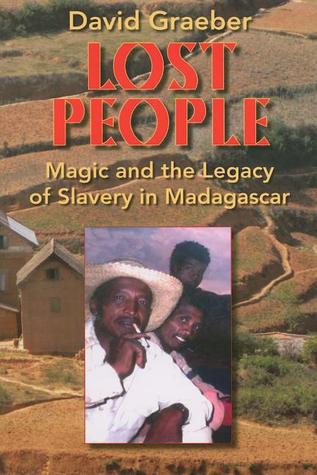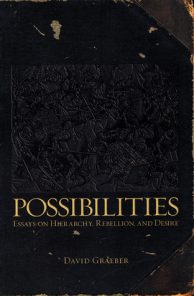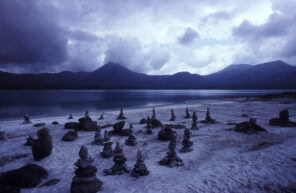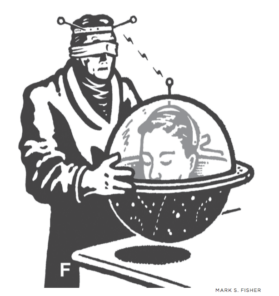Betafo, a rural community in central Madagascar, is divided between the descendants of nobles and descendants of slaves. Anthropologist David Graeber arrived for fieldwork at the height of tensions attributed to a disastrous communal ordeal two years earlier. As Graeber uncovers the layers of historical, social, and cultural knowledge required to understand this event, he elaborates a new view of power, inequality, and the political role of narrative. Combining theoretical subtlety, a compelling narrative line, and vividly drawn characters, Lost People is a singular contribution to the anthropology of politics and the literature on ethnographic writing.

Lost People: Magic and the Legacy of Slavery in Madagascar
A rural community in central Madagascar is divided between the descendants of nobles and descendants of slaves. Anthropologist David Graeber arrived for fieldwork at the height of tensions attributed to a disastrous communal ordeal two years earlier. As Graeber uncovers the layers of historical, social, and cultural knowledge required to understand this event, he elaborates a new view of power, inequality, and the political role of narrative. Combining theoretical subtlety, a compelling narrative line, and vividly drawn characters, Lost People is a singular contribution to the anthropology of politics and the literature on ethnographic writing.https://www.goodreads.com/book/show/773764.Lost_People
Currently only published in English by Indiana University Press in 2007
David Graeber Argues that the Enlightenment Was Heavily Influenced by Pirates
Observer
The late anthropologist maintains that the pirate culture of Madagascar was a major influence on thinkers like Hobbes and Locke.
How Enlightened Were the Pirates of Madagascar?
The New York Times
In his last book, the iconoclastic anthropologist David Graeber considers evidence that maritime outlaws created utopian political communities on the island in the Indian Ocean.
Egalitarian Paradise Lost: David Graeber and the Pirates of Madagascar
Сounterpunch
Noam Chomsky on David Graeber’s Pirate Enlightenment
ArtReview
Nika Dubrovsky speaks to Noam Chomsky about pirate societies, ‘bewildered herds’ and the fragility of the present in the context of the late anthropologist David Graeber’s final book
Pirates and politics
Science
An anthropologist argues that experimental communities in Madagascar influenced the European Enlightenment
David Graeber and the Anthropology of Unequal Society
A review of Debt: The First 5,000 Years
Lost People: Magic and the Legacy of Slavery in Madagascar by David Graeber
Rosabelle Boswell points to the main themes of the book: postcolonial identity, slavery, and violence. She highlights the opening statement that 'People don’t live their lives to prove some academic’s point' - an approach that allows Graeber not only to produce a detailed account of Malagasy living in Betafo, but also to draw readers into the lives of his 'former friends'.
Reviewed Work: Lost People: Magic and the Legacy of Slavery in Madagascar. David Graeber
Margaret L. Brown points out that the intriguing feature of the tale told by Graeber is the extent to which people aim to keep their animosity below the surface. She recommends the book to those readers seeking a detailed analysis of the workings of everyday politics in a small community.
Debate between Graeber and Campbell, 2009
The disagreements between Graeber and Campbell are published under "Communications", 2009
Graeber describes the review by Campbell as an personal insult.
Rev. of Lost People: Magic and the Legacy of Slavery in Madagascar by David Graeber
This is a review by Eva Keller, published in African Studies Review. 52 (1): 165–167, in 2009
David Graeber. Lost People: Magic and the Legacy of Slavery in Madagascar. Bloomington and Indianapolis: Indiana University Press, 2007
This is a review by Detlev Krige, published in African Studies Quarterly, Volume 11, Issue 1 , Fall 2009
Reviewed Work: Lost People: Magic and the Legacy of Slavery in Madagascar David Graeber
This is a review by Genese Sodikoff, published in The International Journal of African Historical Studies. 41 (2): 325–326, 2008
Utopia by the sea
The Guardian
The late anthropologist on how an 18th-century Madagascan microstate provides a model for egalitarian living
The Pirate Philosopher: a Review of David Graeber’s Pirate Enlightenment, or the Real Libertalia
Columbia Journal of Literary Criticism
This is a review by Annelie Hyatt, published in the Columbia Journal of Literary Criticism
Book Review: Pirate Enlightenment, or the Real Libertalia
Flaschenpost
This is a review by Lena Tama, published in the Flaschenpost in 2023
David Graeber’s “Pirate Enlightenment”
The true, swashbuckling lives of matriarchs, anarchists, and pirates at the crossroads of the world.
Were pirates pioneering socialists – or just filthy scallywags?
The Telegraph
This is a review by Nikhil Krishhnan, published in the Telegraph, 19Jan2023
Did pirates advance democracy? David Graeber’s last book makes the case
Los Angeles Times
David Graeber’s posthumous book, “Pirate Enlightenment,” is a reminder of the joys of reading the popular anthropologist.
Kevin Carson. Review of Pirate Enlightenment, by David Graeber
This is a review by Kevin Carson, published in the Center for a Stateless Society in 2023

















